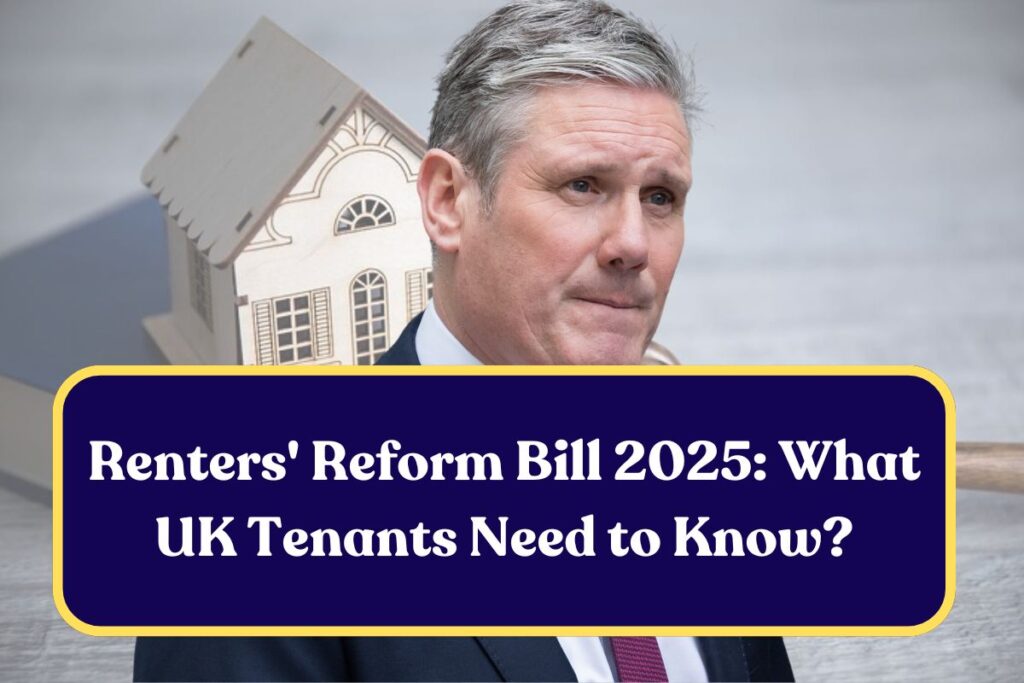Are you waiting for the 2025 Renters’ Reform Bill? Now, the tenants of the U.K. can take a deep sigh of relief as the Renters Reform Bill 2025 has finally been passed by Parliament, ushering in widespread rental law in the U.K. for more than three decades. The restructuring of the bill will bring life to the private rental sector by providing significant protections to renters and new obligations on the landlords.

Renters’ Reform Bill 2025
The Renters Reform Bill is the much-awaited bill designed to deliver the long overdue reforms to the people staying in the Private Rented Sector (PRS). The initial goal is to provide more security to the tenants while providing them a proper stay in rented properties. The Government of the U.K. feels necessitating these steps because the majority of the Public Rented Sector provides rented houses by making it less affordable and of poor quality.
By restructuring the Bill, more than 11 million renters in the U.K. will benefit from the growing concern of sky-high rents, poor condition of the rented property, and insecure housing. So, if you are planning to rent a home in the UK, here’s what you need to know about the recent updates.

2025 Renters’ Reform Bill: Overview
| Article On | Renters Reform Bill |
| Works Under | Government of the U.K. |
| Origin | U.K. |
| Beneficiaries | U.K. Renters |
| Number of impacted people | Over 11 million |
| Category | Finance |
| Official Website | gov.uk |
Renters Reform Bill: Key Features
The System of over 11 million renters and 2.3 million landlords will see substantial change after the implementation of the Renters Reform Bill. This Bill will:
1. Eliminate the Section 21 Evictions: Abolishing Section 21 is probably the most talked-about topic. Under this section, the landlords had the right to evict the tenants without any valid reason, within two months of notice. This would provide more security to the tenants by enabling the tenants to challenge the unfair practice and increase rent without any fear. Under specified grounds only, the tenants can be evicted, only if:-

- He wants to sell the property
- He wishes to move back to his property
- The Tenant has a serious amount overdue
- The Tenant had broken any of the terms and conditions
The tentative timeline for implementing the abolition of Section 21 is November 2025


2. Introducing the Rolling Rentals: This bill puts an end to the fixed-period tenancies by replacing them with other options, such as:
- Providing a valid reason to end the tenancy
- The agreement offers a flexible and long-term stability to the tenant.
- The tenants can give a notice period of at least two months before leaving the rented property.
- This benefit is for those households who has children to look after and the old renters who need the housing certainty.

The tentative timeline for introducing the rolling tenancies will be effective from January 2026.
3. Register in National Landlord: This bill aims to introduce a mandatory registration on the National Landlord, which would help them to crack down the old properties and improve transparency. For this, all the landlords should:
- Register all the rented properties
- Go through the major compliance check
- List their property on the portal, which is accessible to the public.
- The registration would help the tenants to verify whether the landlord is aware of the law prior to signing the lease agreement.
The tentative schedule for opening the portal is December 2025.
4. Reinforcing the Tenant Rights: Under the 2025 rules, the following benefits can be availed by the tenants:
- Right to request a pet in the rented property, and the landlords cannot refuse without a valid reason.
- The discrimination practices can be put to an end as the renters will be allowed to receive the housing benefits
- The notice period has been extended to two months for rent increase; now, the tenants can easily challenge through the proper tribunal.
5. Expelling the Anti-Social Actions: This bill includes quick removal corridors for the tenants who have suffered from sudden anti-social behavior from the landlords. Now, the landlords will have to present the proper proof through the restructured process, which has earlier been criticized for being time-consuming and costly. The other motive behind this measure is to protect the nearby communities by ensuring that the landlords still have the proper tools for maintaining proper order in their rented properties.
Who Gets the Most Benefit from the 2025 Reform?
The 2025 Renters Reform Bill is designed for:
1. Households with school-going children require housing stability.
2. Tenants who are the consistently victims of harassment by the landlords
3. Tenants with low income who are often exploited because of fewer housing options
4. Young employees who constantly commute because of their job switch.
The landlords who are already managing the compliance and regulations will have to meet higher expectations.
What Challenges May the Landlords Face Ahead of this Reform Bill?
This reform bill can act as a burden to the landlords, especially for those who are not familiar with the compliance requirement. Some of the opponents argue that:
1. A Few landlords may leave the market, which would reduce in supply.
2. The rent of the property can rise to cope with the organizational and legal costs
3. The lawmakers may get overwhelmed with the new cases under the new rules.
To avoid any discrepancies, the federal government has planned an educational campaign to provide guidelines for the landlords to meet their specific obligations.
| Official Website | Click Here |
| Homepage | moyle-council.org |





